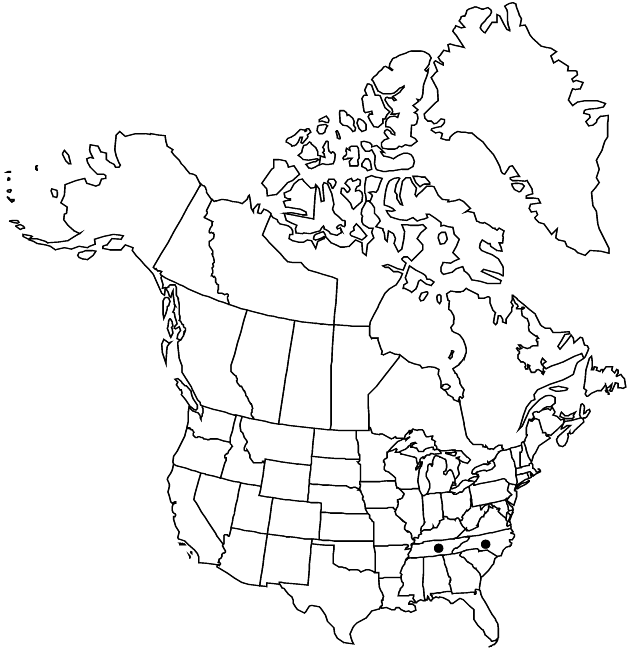Difference between revisions of "Solidago spithamaea"
Amer. J. Sci. Arts 42: 42. 1842.
FNA>Volume Importer |
imported>Volume Importer |
||
| (One intermediate revision by the same user not shown) | |||
| Line 8: | Line 8: | ||
}} | }} | ||
|common_names=Skunk or Blue Ridge goldenrod | |common_names=Skunk or Blue Ridge goldenrod | ||
| + | |special_status={{Treatment/ID/Special_status | ||
| + | |code=E | ||
| + | |label=Endemic | ||
| + | }}{{Treatment/ID/Special_status | ||
| + | |code=C | ||
| + | |label=Conservation concern | ||
| + | }} | ||
|basionyms= | |basionyms= | ||
|synonyms={{Treatment/ID/Synonym | |synonyms={{Treatment/ID/Synonym | ||
| Line 51: | Line 58: | ||
|publication title=Amer. J. Sci. Arts | |publication title=Amer. J. Sci. Arts | ||
|publication year=1842 | |publication year=1842 | ||
| − | |special status= | + | |special status=Endemic;Conservation concern |
| − | |source xml=https:// | + | |source xml=https://bitbucket.org/aafc-mbb/fna-data-curation/src/2e0870ddd59836b60bcf96646a41e87ea5a5943a/coarse_grained_fna_xml/V19-20-21/V20_215.xml |
|tribe=Asteraceae tribe Astereae | |tribe=Asteraceae tribe Astereae | ||
|genus=Solidago | |genus=Solidago | ||
Latest revision as of 20:01, 5 November 2020
Plants 10–40 cm (with somewhat noxious odor); rhizomes short, stout, or branched caudices. Stems 1–10+, erect (usually simple), rough-puberulent or shortly spreading hirsute, or proximally glabrate. Leaves: basal petioles 1.5–7 mm, blades spatulate to lanceolate or subrhombic, mostly 50–109 × 15–40 mm, bases tapering, glabrous, margins sharply serrate, ciliate, apices acuminate; mid and distal sessile, blades lanceolate to subrhombic, much reduced distally, margins serrulate becoming entire distally, glabrous. Heads 15–50+ in compactly rounded corymbiform arrays, becoming paniculiform in robust plants. Peduncles 1–7, short-strigose; bracts leaflike, 5–15 mm. Involucres campanulate, 5–6 mm. Phyllaries (in 3–4 series) lanceolate, unequal (midnerves swollen), acute to acuminate (tips dark green). Ray florets 8–10(–15); laminae 2–3.5 mm. Disc florets 20–60; corollas 3.5–4.5 mm, lobes 1.5–2 mm. Cypselae 2–3 mm, sparsely strigose to glabrate; pappi (of 12–22 bristles) about 3 mm. 2n = 54.
Phenology: Flowering Sep–Oct.
Habitat: Rock crevices of exposed outcrops
Elevation: 1600–2000 m
Discussion
Of conservation concern.
Solidago spithamaea is listed as threatened by the U.S. Fish and Wildlife Service. The species is extant at only three locations; all other known populations were extirpated. It is in the Center for Plant Conservation’s National Collection of Endangered Plants.
Selected References
None.
